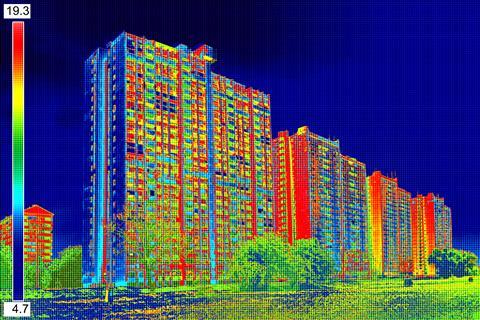Fuel poverty is a fact of life for around four million households across the UK. This number is set to climb by an additional two million following the raising of the utilities price cap last month by the government.

Not surprisingly, landlords and property owners across the UK are looking for answers that make social, environmental and financial sense.
The most cost-effective and long-lasting solutions to fuel poverty can be made through smart retrofits. Improving a building’s efficiency can reduce energy consumption and carbon emissions by 60%. This equates to bill savings of approximately £900 to £1,200 per household per year.
However, retrofits require data that many landlords and property owners lack. One of the most effective ways to obtain this is to combine thermal imaging with open data sources on archetypal building performance.
Thermal imaging works by measuring areas of energy loss in a building. The collected data can then be analysed using artificial intelligence (AI) and combined with open, archetypal building information modelling to give an accurate insight into a home’s energy usage and waste.

The information gathered offers an objective view of what is needed, allowing landlords and owners to select retrofit measures that optimise savings and reduce energy consumption.
Lack of funding remains a hurdle to retrofit execution. Thankfully, these data-driven insights go a long way to solving this challenge. By combining thermal imaging data, advanced AI modelling and risk quantification in an ecosystem approach, project outcomes can be guaranteed through insurance policies. This prevents underperformance and provides confidence to private funders. In turn, this unlocks efficient ESG finance – and since insurance enables risk transfer, off-balance sheet treatment is possible.
By relying on unbiased data, landlords and property owners can make retrofit decisions that will reduce carbon emissions, achieve financial savings and improve occupants’ standard of living.
Stewart Little is chief executive of IRT Surveys




























No comments yet